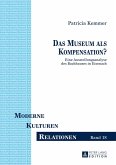Despite demographic projections predicting the increase of older people's populations in African societies and despite the fact that older people face a multitude of problems and care for most HIV/AIDSorphans, they are a much neglected target group in national social policies and international development aid efforts. Most older people are not covered by any formal social protection scheme and are thus forced to find alternative ways of survival. Although there is a variety of national policies and international recommendations that stipulate the provision of social protection mechanisms for older people as a basic right, these lip services substantially lack practical implementation. Hence, the older generation continues to live a marginalized and impoverished life. Based on empirical studies in Tanzania, this book provides an analytical insight into formal and informal systemsof social protection and stresses the need to continuously forge national and international support forolder people to ensure that the gapbetween policy and practice is bridged.
Bitte wählen Sie Ihr Anliegen aus.
Rechnungen
Retourenschein anfordern
Bestellstatus
Storno






